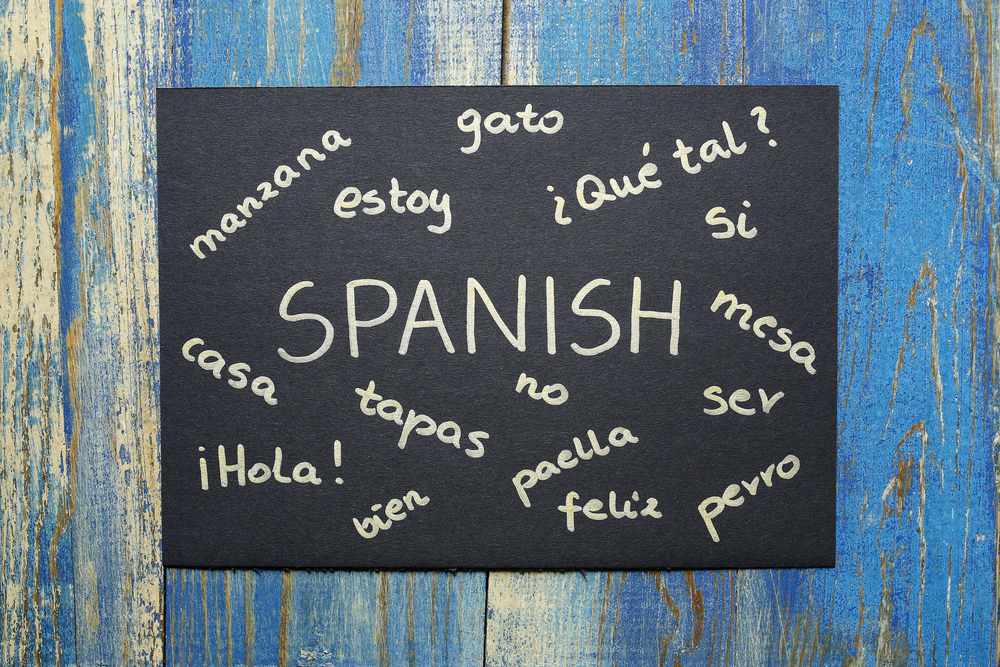
You need to learn Spanish for work, pronto. Maybe you’re taking a new job or assignment in a Spanish-speaking country. Or maybe you’re staying in the U.S. but want to improve your communication with Spanish-speaking colleagues, clients or customers. Either way, you figure that honing your skills in español is a smart career move. What Spanish phrases should you learn first?
And you’re right. Spanish regularly makes the list of the best languages to learn for your career. But no matter how eager you are to reap all of the benefits of speaking Spanish, the prospect of mastering a new language can seem intimidating. If you’re already spending time regularly around native Spanish speakers, you might feel like you’ll never be able to keep up with what they’re saying. Everything you thought you learned in your high-school Spanish classes seems to have evaporated from your brain!
Don’t despair. While you can’t become fluent in Spanish overnight, you can make noticeable progress faster than you might imagine. Try these tips for working some Spanish into your every day life. The key is to study Spanish with an instructor who’s a native speaker. (More on that later.) In the meantime, you can start practicing our list of some of the most common Spanish words and phrases that will come in handy at work.
How to Say Hello and Goodbye in Spanish
You’re probably already familiar with many of these phrases for Spanish greetings, but, in case not, here’s a quick review.
Saying hello in Spanish:
Good morning — Buenos días
Good afternoon — Buenas tardes
Saying goodbye in Spanish:
See you! — ¡Nos vemos! This casual expression is very common, but often not taught in formal language classes.
See you tomorrow! — ¡Hasta mañana!
Introductions in Spanish:
These phrases will help you make a positive first impression when you meet Spanish-speaking colleagues.
My name is … — Me llamo …
It’s nice to meet you — With Spanish speakers from Latin America, use “mucho gusto.” With Spanish speakers from Spain, use “encantado” if you are male or “encantada” if you are female. Or, to keep it simple, just say “un placer” when someone says “nice to meet you.”
Asking Questions in Spanish
Let’s start with a couple of questions you’ll use a lot as you start to learn Spanish.
When you don’t know the Spanish word for something, you can ask a colleague by saying “Como se dice…” followed by the English word or words for whatever you’re trying to express. For example, “¿Como se dice ‘expense report’?” means “How do you say ‘expense report’?”
You should also be prepared to ask people to repeat themselves. It’s not your imagination: Spanish speakers do talk fast. So it’s only natural that you might have trouble catching everything someone says, even if they’re trying to speak more slowly for your benefit. In these situations, the right expression to use is “¿Cómo?” You might already know that “cómo” usually means “how,” but in this context, it’s more like saying “Come again?” or “Say that again?”
How to ask a Few More Common Questions in Spanish:
Where is …? — ¿Dónde está …?
How many …? — ¿Cuántos … ? For example, “¿Cuántos hay?” means “How many are there?”
What …? — ¿Qué? For example, “¿Qué haces?” means “What are you doing?”
How do you do? — When you want to ask in a formal way how someone is, the phrase to use is “¿Cómo está?”
Expressing Needs in Spanish
I need — Necesito
I want — Quiero
Can I …? — ¿Puedo …?
How to say ‘Sorry’ or ‘Excuse Me’ in Spanish
Pardon me — Perdón. This is what to say when you need to reach across someone or interrupt in any way.
I’m sorry — Lo siento. This is how to ask for forgiveness for something you’ve done.
We hope this list helps you feel a little more at ease as you start to use Spanish at work. Make sure you practice these common Spanish phrases every day and start using them with another native speaker! There’s simply no substitute for actually speaking the language you want to learn. We would also love to tell you more about Fluency Corp’s Spanish classes. All of our instructors are native speakers. And you can take classes either in person or live online. To learn more, contact us for a free consultation: getfluent@fluencycorp.com or (800) 401-3159.










